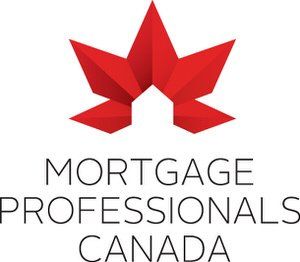The Benefits of Consulting a Mortgage Broker
Michael Hallett • May 8, 2019

Navigating the real estate and mortgage processes with the help of an expert mortgage broker can help set your mind at ease when making one of the largest financial decisions of your life.
Mortgage brokers negotiate with lenders on behalf of borrowers daily, so they know the ins and outs of what’s really important when arranging the best mortgage product and rate based on the unique immediate and longer-term needs of each borrower.
Brokers have access to multiple lenders’ products — including offerings available through banks, credit unions and trust companies, as well as alternate and private lenders. This means more choice for you — and better access to a product and rate that will meet your specific mortgage requirements.
Look Beyond Rate
While mortgage rate plays an important role in the affordability of your mortgage, there are a lot of other factors that can end up costing you more down the road if you fail to consider them when negotiating your mortgage terms. For instance, if you opt for a five-year fixed-rate no frills mortgage product to take advantage of a great rate upfront, but you decide to move before the five-year term is up, you may face thousands of dollars in penalties to break your mortgage. These penalties can far outweigh any savings you made in opting for a lower upfront rate.
By discussing your longer-term needs and goals with you at the start of your home and mortgage shopping experience, your mortgage broker will also help ensure you look for properties within your means — avoiding the potential issue of falling in love with a home you simply can’t afford.
Your mortgage broker will ensure you’re pre-approved for a mortgage so you know what you can afford. And, should rates increase during your pre-approval period, rest assured you will be offered the lowest rate.
Use a Broker at Renewal
It’s just as important to negotiate your mortgage product and rate at renewal time as it is the very first time you get a mortgage.
Your mortgage broker should stay in touch with you throughout the life of your mortgage and help you every step of the way. This partnership lets them re-evaluate your needs annually and assist you with a refinance when you’re in need of extra money for such things as financing renovations or your children’s education. You may also wish to buy an investment or rental property down the road.
Ask questions
If you don’t understand something your mortgage broker has told you, it’s important to ask for clarification. It’s their job to ensure you understand. After all, in the vast majority of cases, mortgage brokers across Canada are paid by the lender once they successfully place your mortgage. So it’s in your broker’s best interest to ensure you receive the best possible mortgage product and rate now and as long as you have a mortgage.
This article was produced by Mortgage Professionals Canada
(formerly CAAMP), the national association and the collective voice of the mortgage industry in Canada.
SHARE
MY INSTAGRAM
Mortgage Brokering meets mountain biking and craft beer. A couple months ago I set for a bike ride with the intention of answering few mortgage related questions, mission accomplished. Any good bike ride pairs nicely with a tasty beer which we enjoyed @parksidebrewery. Hope you see the passion I have for brokering, biking and beer. @torcabikes #mountainbikingmortgagebroker
TEASER alert...at thats what I think they call it in the business. Years ago a wrote a blog called BEERS BIKES AND MORTGAGES. I some how (in my head) blended all 3 topics into 1 blog. Simply put, I enjoy aspects of all 3 with each of them providing something different. I re-united with the talented Regan Payne on a project that I think will shed a bit more light on who I am and what I do. #craftbeer #mountainbike #mortgagebrokerbc #dlccanadainc
I saw this hat on Instagram, that very moment I knew I needed it. As a BC boy born and bred The Outdoorsman hat needed to be added to my collection. As someone who loves BC and most things outdoor, I’m now glad I have a cool hat to wear and fly the flag of BEAUTIFUL BRITISH COLUMBIA. It will be in my bag for all post-exploration celebratory cold pints. If you want to check them out or add one to your collection go to @nineoclockgun ...and yes my facial hair matches the hat as well.
View more

Bank of Canada maintains policy rate at 2¼%. FOR IMMEDIATE RELEASE Media Relations Ottawa, Ontario January 28, 2026 The Bank of Canada today held its target for the overnight rate at 2.25%, with the Bank Rate at 2.5% and the deposit rate at 2.20%. The outlook for the global and Canadian economies is little changed relative to the projection in the October Monetary Policy Report (MPR). However, the outlook is vulnerable to unpredictable US trade policies and geopolitical risks. Economic growth in the United States continues to outpace expectations and is projected to remain solid, driven by AI-related investment and consumer spending. Tariffs are pushing up US inflation, although their effect is expected to fade gradually later this year. In the euro area, growth has been supported by activity in service sectors and will get additional support from fiscal policy. China’s GDP growth is expected to slow gradually, as weakening domestic demand offsets strength in exports. Overall, the Bank expects global growth to average about 3% over the projection horizon. Global financial conditions have remained accommodative overall. Recent weakness in the US dollar has pushed the Canadian dollar above 72 cents, roughly where it had been since the October MPR. Oil prices have been fluctuating in response to geopolitical events and, going forward, are assumed to be slightly below the levels in the October report. US trade restrictions and uncertainty continue to disrupt growth in Canada. After a strong third quarter, GDP growth in the fourth quarter likely stalled. Exports continue to be buffeted by US tariffs, while domestic demand appears to be picking up. Employment has risen in recent months. Still, the unemployment rate remains elevated at 6.8% and relatively few businesses say they plan to hire more workers. Economic growth is projected to be modest in the near term as population growth slows and Canada adjusts to US protectionism. In the projection, consumer spending holds up and business investment strengthens gradually, with fiscal policy providing some support. The Bank projects growth of 1.1% in 2026 and 1.5% in 2027, broadly in line with the October projection. A key source of uncertainty is the upcoming review of the Canada-US-Mexico Agreement. CPI inflation picked up in December to 2.4%, boosted by base-year effects linked to last winter’s GST/HST holiday. Excluding the effect of changes in taxes, inflation has been slowing since September. The Bank’s preferred measures of core inflation have eased from 3% in October to around 2½% in December. Inflation was 2.1% in 2025 and the Bank expects inflation to stay close to the 2% target over the projection period, with trade-related cost pressures offset by excess supply. Monetary policy is focused on keeping inflation close to the 2% target while helping the economy through this period of structural adjustment. Governing Council judges the current policy rate remains appropriate, conditional on the economy evolving broadly in line with the outlook we published today. However, uncertainty is heightened and we are monitoring risks closely. If the outlook changes, we are prepared to respond. The Bank is committed to ensuring that Canadians continue to have confidence in price stability through this period of global upheaval. Information note The next scheduled date for announcing the overnight rate target is March 18, 2026. The Bank’s next MPR will be released on April 29, 2026. Read the January 28th, 2026 Monetary Report

Mortgage Registration 101: What You Need to Know About Standard vs. Collateral Charges When you’re setting up a mortgage, it’s easy to focus on the rate and monthly payment—but what about how your mortgage is registered? Most borrowers don’t realize this, but there are two common ways your lender can register your mortgage: as a standard charge or a collateral charge . And that choice can affect your flexibility, future borrowing power, and even your ability to switch lenders. Let’s break down what each option means—without the legal jargon. What Is a Standard Charge Mortgage? Think of this as the “traditional” mortgage. With a standard charge, your lender registers exactly what you’ve borrowed on the property title. Nothing more. Nothing hidden. Just the principal amount of your mortgage. Here’s why that matters: When your mortgage term is up, you can usually switch to another lender easily —often without legal fees, as long as your terms stay the same. If you want to borrow more money down the line (for example, for renovations or debt consolidation), you’ll need to requalify and break your current mortgage , which can come with penalties and legal costs. It’s straightforward, transparent, and offers more freedom to shop around at renewal time. What Is a Collateral Charge Mortgage? This is a more flexible—but also more complex—type of mortgage registration. Instead of registering just the amount you borrow, a collateral charge mortgage registers for a higher amount , often up to 100%–125% of your home’s value . Why? To allow you to borrow additional funds in the future without redoing your mortgage. Here’s the upside: If your home’s value goes up or you need access to funds, a collateral charge mortgage may let you re-borrow more easily (if you qualify). It can bundle other credit products—like a line of credit or personal loan—into one master agreement. But there are trade-offs: You can’t switch lenders at renewal without hiring a lawyer and paying legal fees to discharge the mortgage. It may limit your ability to get a second mortgage with another lender because the original lender is registered for a higher amount than you actually owe. Which One Should You Choose? The answer depends on what matters more to you: flexibility in future borrowing , or freedom to shop around for better rates at renewal. Why Talk to a Mortgage Broker? This kind of decision shouldn’t be made by default—or by what a single lender offers. An independent mortgage professional can help you: Understand how your mortgage is registered (most people never ask!) Compare lenders that offer both options Make sure your mortgage aligns with your future goals—not just today’s needs We look at your full financial picture and explain the fine print so you can move forward with confidence—not surprises. Have questions? Let’s talk. Whether you’re renewing, refinancing, or buying for the first time, I’m here to help you make smart, informed choices about your mortgage. No pressure—just answers.








































































































